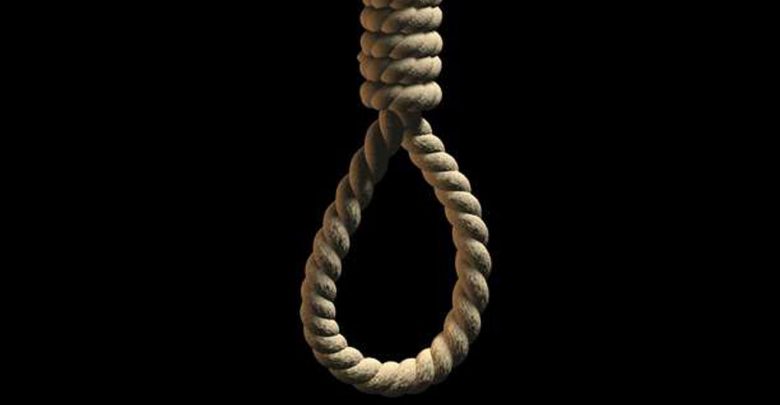Spike in suicides leaves Zimbabwe’s universities scrambling for answers

Presiding over funerals is a routine part of Tomson Dube’s job, but a recent trend has left him worried.
The National University of Science and Technology (Nust) chaplain has already handled two funerals of students that committed suicide this year.
Dube said suicide was emerging as the biggest cause of death for students at Nust and other universities across the country.
“I have presided over two funerals of students that died of suicide this year alone,” he said.
“We are still yet to get deeper into the year (but we have already lost so many lives).
“The suicides usually occur during examination time.”
One of the people, who became part of the suicide statistics, last month was Misheck Siwela, a second-year actuarial science student.
The 21-year-old budding actuarial scientist’s lifeless body was found hanging from the roof trusses of his family’s Nketa home in Bulawayo.
Siwela did not leave a suicide note and his family is puzzled about the suicide, as he had not shown any signs of depression.
He committed suicide when he and his fellow students were preparing for their end of semester examinations this month.
Blessing Mangena, a first-year statistics student was crushed by a train in November last year in another case of suspected suicide.
Two months earlier, the body of a second-year finance student had been found hanging at a Nust hostel.
The student is suspected to have committed suicide, but just like Siwela, he did not leave any clue on why he had to take his life.
Although most tertiary institutions in Matabeleland and Midlands were not forthcoming with statistics on suicide deaths among students, investigations by CITE revealed disturbing trends.
At Midlands State University (MSU), one of the largest tertiary institutions in the country, a number of students have committed suicide in recent months.
One of the students who died recently was Walter Temera, who took his own life in November last year after he found a lecturer in bed with his girlfriend.
Several students from the institution have committed suicide since then.
Ryan Katayi, a member of the Students Depression Awareness movement at NUST, said it was difficult to pinpoint reasons why students were taking their own lives since most of them did not leave behind suicide notes.
“The majority of suicides and suicide attempts occur among students who suffer from depression, high-stress levels, fear of discovery for mistakes made, family issues, failure and general lack of belonging to a particular society, “ he said.
Katayi’s sentiments were echoed by Mheli Ncube, a psychology student at the MSU, who said depression was the leading cause of suicides at colleges.
“What I have observed over the past two years is that suicide is caused by failure to manage stress, leading to depression that gives the opportunity to suicidal ideation,” Ncube said.
“It’s not exactly a single event that prompts one to think about taking their own life, rather it is a series of events, which are not being handled well by the individuals.”
Ncube said failure to fit into a new community was also another reason students were taking their own lives.
“Some of the students who commit suicide would have succumbed to pressure to impress, which is sometimes beyond their capacity,” he added.
“The people around the individual also play a pivotal role.
“When one does not get support through their time of difficulty, they may be isolated from the world, forcing them to withdraw from life, leading to depression and suicide.”
Ncube said tertiary institutions should do more to deal with depression among their students to curb the rising cases of suicides.
“Depression is still a taboo in Zimbabwe, which forces people to shy away from seeking psychological assistance,” he said.
“In universities, most individuals withdraw and isolate themselves to avoid handling tough situations, which in reality is a symptom of depression.”
Katayi said the institutions must move towards setting up counselling services on their campuses and when students are found to be suffering from depression, their families should be involved.
Following widespread concern about the rate of suicides, Nust organised a prayer meeting for students on May 3 to deal with “examination related anxiety, depression and fear”.
“I have been troubled in my spirit concerning the ever-increasing numbers of suicide cases at the national level and more so at my area of jurisdiction,” Dubbed was quoted saying at the time.
“Depression is real! Depression affects people of all ages, Christian or non-Christian and from all walks of life
“At worst, depression can lead to suicide, which is now the second leading cause of death among 19-26-year olds.”
Dube told CITE that the issue of rising cases of suicides had to be tackled before the trend permeates to students in secondary and primary schools.
“Tertiary institutions are supposed to be havens of educating students to change their behaviour and be knowledgeable of the world out there,” he added.
“However, there is a different message being sent out. This trend needs to be arrested before it escalates or cascades to high schools.
“It is a spiritual problem. We are dealing with a demon that comes to kill steal and destroy.”
Dube said suicides at tertiary institutions cannot be treated in isolation because the students were affected by family and community relations.
“Above that, it is due to unresolved family matters that are hidden.
“They manifest in diverse ways and the nearest to the victim is suicide,” he said.
“It sounds very minor when they commit suicide but that is the way they choose.
“Family baggage comes into play and the balancing of the pressure from peer pressure, fees and upkeep finance is a horde of challenges.”
Dube said suicide deaths tended to “shake everyone and the institution”.
According to the World Health Organisation, more than 300 million people were found to be suffering from depression worldwide last year.
Last year, Higher and Tertiary Education, Science and Technology Development minister Amon Murwira said the government was worried about the rise of suicide cases at universities.
He said the government was looking into improving psychological support at the institutions.
Murwira said his department would investigate “the cause of mental health issues”, which he said were the leading cause of suicides.






